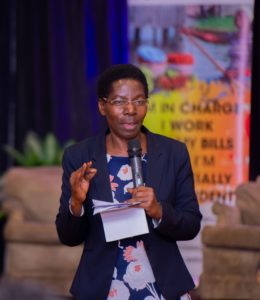ALL AFRICA: Advocating for African Solutions to Illicit Financial Flows
Magnitude of illicit financial flows in Western Africa.
By Michael Tantoh
Civil society actors, journalists, academics, lawyers and other African actors are advocating for African initiatives to fight against illicit financial flows
A public round table was organised by TrustAfrica in Dakar, Senegal on June 24 under the theme – “The latest developments in illicit financial flows and the role of African media”. Participants said that recent crises have shown how critical it is to mobilise internal resources to deal with pandemics and current challenges for the continent’s development. To this end, the fight against illicit financial flows (IFFs) is now more than ever, a matter of absolute urgency.
Pan-African think tank TrustAfrica estimates that losses suffered by the continent amount to about U.S.$88.3 billion per year and represents 3.7% of gross domestic product (GDP), money which could be channeled towards the transition to a post-Covid-19 Africa and structural transformation and development. This is happening because of insufficient legal and institutional frameworks coupled with a lack of specific texts dedicated to the fight against these illicit flows.
John Kaninda, a lawyer at the Kinshasa bar, specialising in mining and energy laws and taxation said that Africa wouldn’t need international aid if this capital flight was stopped. While Dr. Malado Agne, a teacher and researcher at Cheikh Anta Diop University, criticised the fact that at the international level, IFFs are analysed from the perspective of sustainable development. What irritates the most, the solutions are known and recognised, but great difficulty lies in its application because of resistance from players who are involved in the industry, especially since 65% of illicit financial flows come from mining activity, Agne said.
OPEN OWNERSHIP: Connecting beneficial ownership data and public procurement in Kenya
Open Ownership organised a workshop in Nairobi on 14 and 15 June 2022 to discuss the current state of beneficial ownership (BO) data in Kenya, and its connections to public procurement.
Co-organised with the Business Registration Service, which has responsibility for collecting BO information from companies in Kenya, the two-day hybrid workshop brought together over 40 participants from government, civil society, academia and the media.
Current situation
In January 2022, Kenya updated its legislation to allow beneficial ownership data to be published for the first time. Now, when bidding for public procurement tenders, companies must ensure the details on ownership and control are up to date on the central register. They must also consent to this information being published in the event that they win the contract. The information can then be released as part of the country’s open contracting data publications.
Tax Flashlight: June 2022
UGANDA: CSO Position on the Tax Amendment Bills for FY 2022/23
In April 2022, Uganda’s Minister of Finance Planning and Economic Development
tabled the Tax Amendment Bills, 2022 before Parliament for debate…
Tax justice from the ground up: An interview with SEATINI Uganda
In this blog, the ICTD speaks with Jane Nalunga, Executive Director of SEATINI Uganda to learn about the organisation’s quest for tax justice and how it has enhanced the voices of citizens to demand accountability and effectively participate in fiscal policies.

Can you provide us with a brief background of your organisation’s work?
Nalunga: For over 10 years now, SEATINI Uganda has focused on promoting fair and inclusive fiscal policies and strategies for revenue mobilisation, allocation, utilisation and accountability for sustainable development.
The discourse on Domestic Revenue Mobilisation (DRM) is critical for low-income countries in Sub-Saharan Africa, including Uganda. DRM not only provides governments with funds needed to invest in development, alleviate poverty and deliver public services, but is also a critical step on the path out of aid dependence to sustainable development financing.
